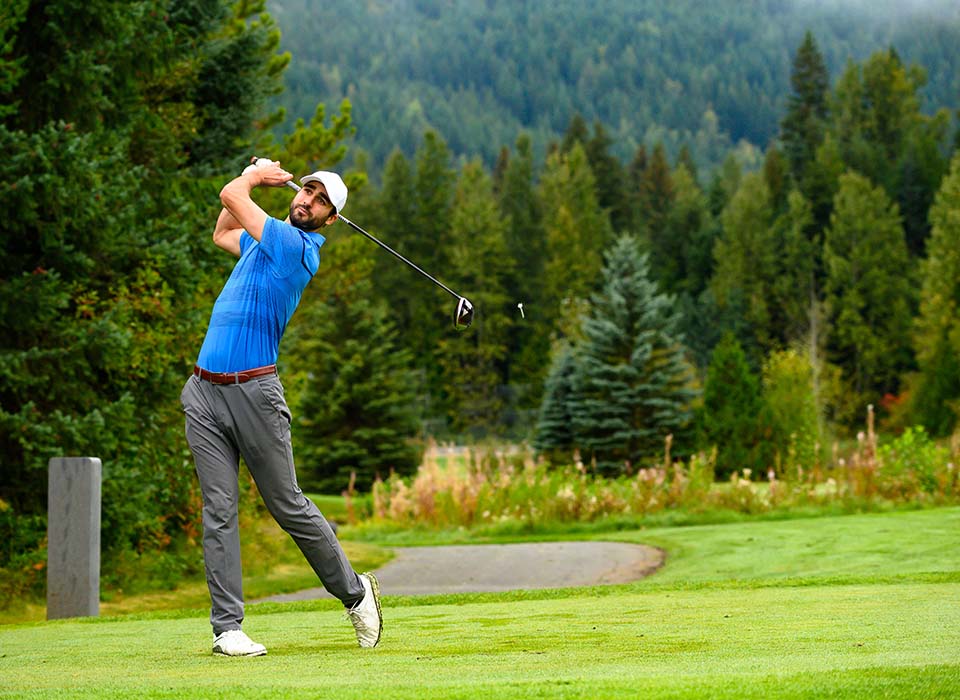As the weather warms up and players get back on the golf course, the last thing a golfer needs is pain that affects their game. The explosive nature and repetitive motion of a golf swing can lead to a few common injuries. While both casual and professional golfers can experience injury, most golf-related injuries can be prevented by understanding the proper grip and swing mechanics. If a player is injured, treatment is available. As with all physical activities, making sure to always stretch and warm up being playing, with a focus for golf on the back and shoulders, will help prevent injuries.
Back Injuries
Golfers spend most of their time on the course in a bent position putting a lot of strain on their spine and back muscles. This bent posture combined with the rotational stress of the golfer’s swing can lead to minor strains in the back, which can cause major back injuries if not treated properly. The best and easiest way to prevent back pain is to make sure you are performing back strengthening exercises. It also is important to properly warm up and continuously stretch your back between holes on the course. Focus on movements that elongate the spine to counteract the bent position that golf requires.
Elbow Injuries
Another common injury is golfer’s elbow or tendonitis in the elbow. Tendonitis is the irritation and inflammation of tendons, which connect muscles to bones. The continuous gripping and flexing of the club while playing golf can contribute to the inflammation of the inside of the elbow. An improper swing can also cause flare-ups of tendonitis in the elbow. Tendonitis requires rest to allow your body to properly recover, so don’t return to play until all symptoms have gone away.
Shoulder Injuries
The most common shoulder injury that a golfer may experience is an injury to the rotator cuff. These injuries are mostly caused by a forceful swing hitting the ground or a rock instead of the golf ball. Improper form while swinging the club or overuse of the shoulder can also cause injury to the rotator cuff. Modified movements in your swing or strength exercises can usually help treat a rotator cuff injury. If pain lasts longer than a few weeks, seek medical advice.
Hand and Wrist Injuries
Golf swings require high-speed and repetitive motions which can often cause injury to the hand and wrists. Understanding the best grip to hold your club is the best way to prevent hand injuries. If you feel any irritation in your wrist, you may have tendonitis and will need to rest until the symptoms go away. Golf pro shops have employees who can teach you the proper swing mechanics as well as help you improve your technique to prevent these injuries.
Sports medicine physicians and physical therapists can help you eliminate any pain you’re having so you can get back on the course and enjoy playing.

